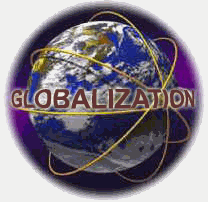GERMAN COAL
January 26, 2007 at 10:13 pm | Posted in Economics, Financial, Globalization, History, Oil & Gas, Research, Science & Technology | Leave a commentDeutsche Bank
DB Research: No prospects for German hard coal – but “clean coal” offers great potential
Friday, January 26, 2007
Dear reader,
We have just issued the following note which is available at our website under the heading “Talking point”:
No prospects for German hard coal – but “clean coal” offers great potential
According to press reports the costs at RAG’s hard-coal subsidiary Deutsche Steinkohle AG (DSK) exceeded the approved subsidies by EUR 163 m in 2006. DSK says for this reason that it will not rule out shutting down a colliery by year-end if the deficit is not covered.
Some 3,000 jobs would be lost as a result.
This marks a new low in the history of hard coal in Germany. Before and after World War II, coal played an important role in energy policy. After the war it was initially an advantage to have locally abundant deposits of hard coal and brown coal as a source of energy. There is no denying that domestic coal did much to shore up Germany’s energy supply during those first few decades…
Please find the complete text here:
http://www.dbresearch.com/servlet/reweb2.ReWEB?rwkey=u20057997
If you have any further questions, please do not hesitate to contact us:
Deutsche Bank Research
Marketing
Internet: http://www.dbresearch.com
Intranet: http://dbresearch.db.com
DB Research now also publishes its research findings via RSS news feed.
For further information see the “Service” section on our homepage.
DB Research: No prospects for German hard coal – but “clean coal” offers great potential
Friday, January 26, 2007
BANK FOR INTERNATIONAL SETTLEMENTS BIS REVIEWS NOS.9-8 2007
January 26, 2007 at 3:29 pm | Posted in Economics, Financial, Globalization, History, Research | Comments Off on BANK FOR INTERNATIONAL SETTLEMENTS BIS REVIEWS NOS.9-8 2007BIS Review
Bank for International Settlements
25 January 2007
http://www.bis.org/review/index.htm
Please find BIS Review No 9 attached as an Adobe Acrobat (PDF) file. Alternatively, you can access this BIS Review on the Bank for International Settlements’ website by clicking on http://www.bis.org/review/index.htm
What’s included?
BIS Review No 9 (25 January 2007)
Mervyn King: Monetary policy developments
Toshihiko Fukui: The dynamism of Asian economies and central bank cooperation in the region
Burhanuddin Abdullah: Capitalizing on stability for sustained growth
Amando M Tetangco, Jr: The BSP and the banking community – a partnership for a better year in 2007
Ajith Nivard Cabraal: Sri Lanka and its battle against money laundering and terrorist financing activities
______________________________
If you would like to be taken off the list to receive BIS Reviews, or if you would like to add or change an address, please e-mail press.service@bis.org
Please find BIS Review No 8 attached as an Adobe Acrobat (PDF) file. Alternatively, you can access this BIS Review on the Bank for International Settlements’ website by clicking on http://www.bis.org/review/index.htm
What’s included?
BIS Review No 8 (22 January 2007)
Stefan Ingves: Swedish experiences of monetary policy with an inflation target
Ajith Nivard Cabraal: Road map for monetary and financial sector policies in 2007 and beyond
Shyamala Gopinath: Overseas investments by Indian companies – evolution of policy and trends
Malcolm D Knight: Objectives and challenges of monetary policy
______________________________
If you would like to be taken off the list to receive BIS Reviews, or if you would like to add or change an address, please e-mail press.service@bis.orgBIS Review No 8 available
“Publications, Service” Publications@bis.org
Press, Service Press.Service@bis.org
Monday, January 22, 2007
The Bank for International Settlements (BIS) has today released provisional international banking statistics, as of end-September 2006.
These statistics are now available on the BIS website (www.bis.org), with a statistical commentary pointing out some highlights of the data. No formal press release will be issued.
Specific questions regarding this document may be sent to Karsten von Kleist by e-mail (Karsten.von-Kleist@bis.org). Alternatively, for further information please phone the press enquiries number given above or e-mail press.service@bis.org
The Bank for International Settlements has today released provisional international banking statistics as at end-September 2006. See the attached press alert for details.
| Press alert | |
|
Press enquiries: +41 61 280 8188 |
|
|
Ref no: A2/2007 |
|
Regards, BIS Press & Communications
BIS releases provisional international banking statistics
Friday, January 26, 2007
SENATOR OBAMA 2008
January 26, 2007 at 3:11 am | Posted in Economics, Financial, Globalization, History | Leave a commentWhy Senator Obama should propose a Muslim-friendly path to further globalization and what this means for the average American….
The November 2006 issue of “Global Finance” magazine is very eye-opening if you let it be. The cover story “Globalization” shows a picture of the economist Joseph Stiglitz. The caption of the Stiglitz photo reads, “There are losers as a result of trade liberalization.”
Down below on page 19 there’s a boxed story with a comment from a Marc Chandler, Brown Brothers Harriman in New York, who says:
“It is in the US economic and geo-strategic interests for there to be deep and broad Islamic capital markets.”“They promote economic development and thus foster stability. They help to integrate the region and its people into the world economy, giving them a greater stake in the world’s prosperity.”The article continues,
“Chandler says the US should issuing a dollar-denominated Sharia-compliant financial instrument. ” It would signal respect for Islamic law and people and would recognize the limitations of military and political strategies. “” Such an instrument would also appeal to fund managers of socially responsible investments, who may be attracted to the high ethical standards that Sharia demands.”
Comment: contrast this tone emanating from global finance with the anti-Muslim hysteria of Ziocons like Henry Kissinger appearing on TV shows such as PBS’s “Charlie Rose,” and you immediately see how the country has been uniquely misdirected by the Kissingers and Mort Zuckermans of this world. A few months ago Kissinger on “Charlie Rose” mused out loud, “There are 150 million Muslims in India. Soon there will be 500 million. The world has to watch out for this.”
In other words, the entire tone of neocon/Ziocon ways of looking at the world starts with an eternal and burgeoning Muslim threat. These Ziocons have imposed a world-history bum steer on the White House and most of Washington
This is exactly what Obama-ism should overturn.
The deeper truth is that Muslims should be partners in globalization which is what you get if you unbraid the November 2006 “Global Finance” cover story mentioned above.
The Average American’s position in all this
The American working and middle classes can only be convinced that globalization is a boon and not a threat if the Obama campaign proposes a New Deal II for 2008:The American government will not only get entitlement spending under control but will tilt social spending to make economic insecurity less of a threat by progressive legislation which puts a floor under American health and job losses.
This makes American society a kind of can-do pragmatic “trampoline” which makes globalization with Muslim associates seem tremendously interesting and not Kissinger-style demonic threats.
Such an Obama policy would solve the world’s “traffic jam”.
The First Hundred Days of the Obama presidency
In order to calm the cancerous anarchic Islamophobia that governs American policy now, America would immediately call for and lead the following conferences:
1.Palestine
2.Kashmir
3.Chechnya
The goal would be to come up with solutions within 30 days and make America a Muslim-friendly society which would defeat both Al-Qaeda and the Ziocons.In other words the Obama vision should fuse:
- a Western/Third World development alliance with excellent relations with Muslims worldwide.
- A New Deal for American working and middle class families which would modernize “risk management” in terms of healthcare and employment, pensions, etc.
This relieves the world’s traffic jam and the clash between the average American and the globalization process, between Americans and Muslims.
CONCEPTUALIZING THE OBAMA PRESIDENTIAL RUN
Question 1: What is the design of presidential campaigns?
Election campaigns involve three basic elements:
-
1. tactics (how to weave and bob and ride electoral moods)
- How would one begin to come to grips with this question?
- hysterical violence (the neocons/Ziocons embody this tendency)
- misplaced religiosity (Christian Right)
- escapism (teenage slogan: “whatever”)
- market fundamentalism (Adam Smith as the coming messiah)
- What should the Obama presidential run stand for?
2. technical means (internet and phone and media campaigns looking for votes and dollars )
3. direction for the nation and hence for the world.
This post is limited to comments on item 3 above and has nothing to say about 1. and 2.
Question 2: What is the fundamental issue for 2008?
The deep issue is:
How to manage globalization so that American working families stand to benefit and the middle class expands?
When “humungous” changes loom and seem threatening and shapeless, Americans respond in the following ways:
Americans always throw gods and flags, wisecracks and guns, doctrines and snarls towards this inchoate process called globalization.
An American-lead globalization that is friendly to Arabs, Muslims, Third World development.
This sees the world not as an us-against-them seesaw (if they’re up, we must be down, since that’s what a seesaw does) but rather as a “traffic jam” where the world is stuck and paralyzed by interactive fundamentalisms and needs to move on to a developmental route.
What the American voter needs to know is that his interest and that of his children is protected by a “new deal” where globalization becomes his “friend.”
The current “laissez-faire” type of “sauve qui peut” (save himself who can) globalization where it looks like China will make everything and India will be the world’s software backoffice, means that non-wealthy Americans are immobilized by the legitimate thought, “how will my children and their children make a living? After all, if China becomes the world’s factory and India the world’s office, what’s left?”
6. Does the Eddie Murphy movie “Trading Places” foresee our future?
As globalization proceeds under the Republican “sauve qui peut,” architecture, one senses the birth of a “trading places” global system as captured by the prophetic 1980’s movie comedy by that name, starring Eddie Murphy.The Obama campaign has to state this and show the way out of this chaotic mess, a way forward which does not depend on the current “fog of war” policy calculated to conceal what’s really at stake.










